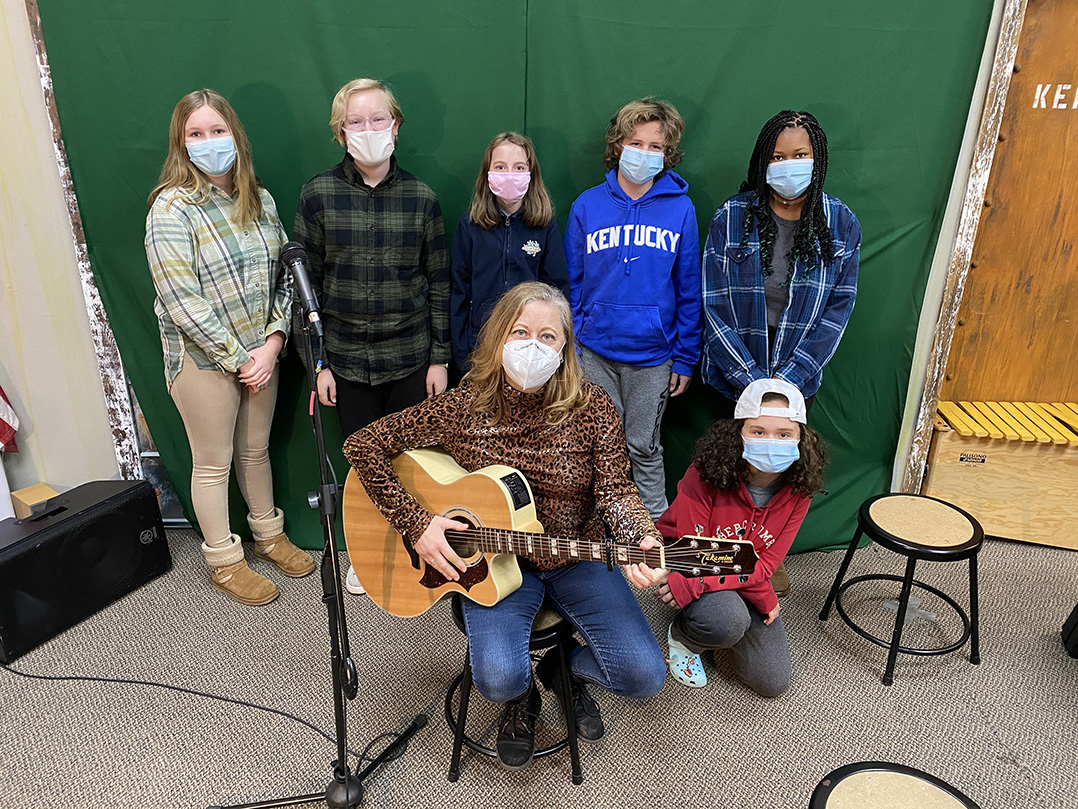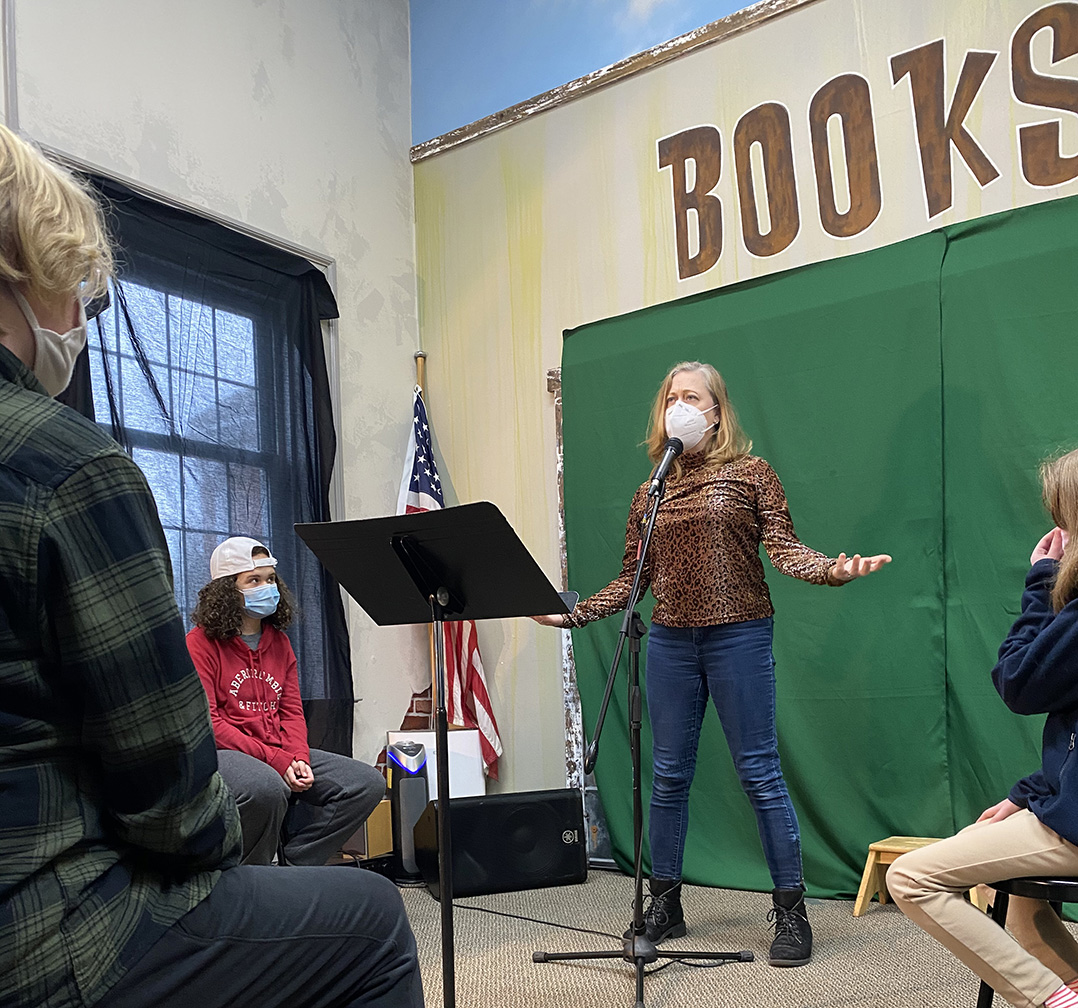By Haley Miller
Julie Pappas, performing arts teacher at Fortune Academy, said teachers across the country had two options while managing their classes during a pandemic: They could become overwhelmed and enter “survival mode,” or they could accept the chaos and use it creatively.
“That’s been my attitude,” Pappas said. “At first, I was overwhelmed like every teacher in the world, but we can’t stay in that place of discouragement. I think that as teachers in America, this is an opportunity for us to learn new things, try new things and to make education even better.”
Fortune Academy is a private school at Fort Benjamin Harrison that specializes in language-learning differences and disabilities, such as dyslexia. Pappas’s innovative drama teaching methods amid the COVID-19 pandemic earned her recognition from the U.S. Dept. of Education. Homeroom, the national blog for the Dept. of Education, published her experience to its website feed on Dec. 16.
The department first took notice of Pappas because of her own blog post, which she wrote to detail her story of not only surviving, but also thriving, under the challenging circumstances of teaching during a pandemic. Vanessa Coles, head of school at Fortune Academy, suggested Pappas document her fresh ideas and out-of-the-box methods she implemented in her classroom and send the piece to the Dept. of Education.
Pappas said her after-school performing arts program caught the department’s attention. Her drama students, who normally perform at Theater at the Fort in Lawrence, were left without a venue when the performing arts center closed indefinitely because of the coronavirus pandemic. But Pappas adapted quickly.
Because Fortune Academy’s drama department purchased theater equipment beforehand, she moved the show outside and helped students perform it entirely on school property. Parents were able to pull up their cars and watch safely from insider their vehicles. In addition, Pappas changed the format of the production to a poetry slam, so the students could perform 6 feet apart on stools while not losing any of the excitement of live theater.
“It was an all-around amazing experience, and I think the kids saw through that experience that just because you are faced with a challenge like a pandemic, which is a huge challenge, we can figure out ways by thinking outside of the box to overcome our challenges through problem-solving, through coming up with new creative ideas like a poetry slam,” Pappas said. “The kids really felt empowered and proud and just excited to be part of something brand new.”
Pappas said experiences like the dramatic performances she organizes can help students build confidence, self-worth and friendships with one another. She said that growing up with a language-based learning disability has a severe impact on kids’ self-esteem, and in many cases they need someone to believe in them and help them come out of their shell. Theater and drama programs can be a positive and growth-oriented outlet.
“I have seen time and time again students blossom as a result of being in a play in which you work together as a team,” Pappas said. “Everybody has value, everybody has an important part. They get up on a stage and they overcome a lot of fear.”

No stranger to innovation
Even before the challenges of the COVID-19 pandemic began, performing arts teacher Julie Pappas was no stranger to innovation within the Fortune Academy drama department.
About five years ago, she started writing her own shows for kids in her drama programs to perform because she was dissatisfied with the plays available on the market.
“I would buy a show and read it and think, ‘This is just not what I want for our students. This doesn’t say what I want it to say. It doesn’t communicate a message that can be life changing for our society, and it’s not adaptable,’” Pappas said.
For students with language-based learning differences, typical drama pieces like Disney shows are more difficult to put stage, Pappas said. The stories often limit the kids and aren’t constructive. So, Pappas writes original scripts, usually based on well-known literary tales like Jack and the Beanstalk but contextualizes them in modern times and offers a relevant message.
“I have the complete flexibility to adapt the play to their needs and communicate something of value to our society,” Pappas said.



